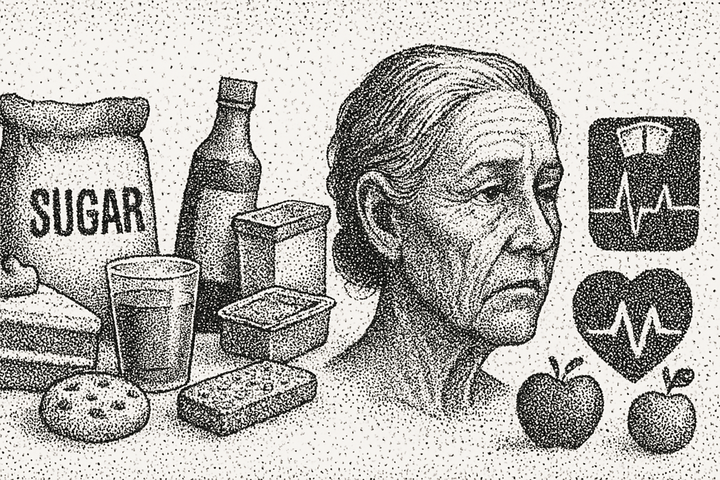All Meat, No Plants: Is the Carnivore Diet a Game-Changer or a Gamble?

What is the Carnivore Diet?
The carnivore diet is an extreme eating regimen that consists exclusively of animal products, including meat, fish, eggs, and some dairy, while excluding all plant-based foods such as fruits, vegetables, grains, legumes, nuts, and seeds. It is often described as a "zero carb" diet and is a subtype of the ketogenic diet, aiming to induce ketosis by minimizing carbohydrate intake. This diet has gained popularity through social media, with proponents like Joe Rogan and Jordan Peterson advocating its benefits, particularly for weight loss and mental clarity (Carnivore Diet: Food List, Benefits, Risks, and More, published May 28, 2024).
Long-term Effects of the Carnivore Diet
The long-term effects of the carnivore diet are not well-established due to limited research, but available data suggest both potential benefits and significant risks:
- Reported Benefits: A survey of over 2,000 adults following the diet for 9 to 20 months reported health benefits and high satisfaction, with some experiencing reductions in hemoglobin A1c for type 2 diabetes (Behavioral Characteristics and Self-Reported Health Status among 2029 Adults Consuming a “Carnivore Diet”, published 2021). Anecdotal reports also mention weight loss and improved energy levels.
- Potential Risks: The diet lacks fiber, essential for gut health, which can lead to constipation and may increase the risk of gut inflammation (Carnivore Diet: Food List, Benefits, Risks, and More). High saturated fat intake, common in animal products, is linked to elevated LDL cholesterol, increasing heart disease risk (What is the carnivore diet?, published May 7, 2024). Long-term concerns also include kidney stones, gout, and osteoporosis due to high protein intake.
Below is a table summarizing these effects:
Scientific Criticism and Risks
Scientific critique of the carnivore diet is substantial, emphasizing its lack of robust evidence and potential health risks:
- Lack of Long-term Studies: Experts note the absence of randomized controlled trials, with most evidence being anecdotal or from short-term surveys (Meat madness: The risks of the carnivore diet, published September 25, 2024). The phrase "carnivore diet" only appeared in a scientific paper title in 2020, highlighting the research gap (The Carnivore Diet: What Does the Evidence Say?, published September 13, 2024).
- Nutrient Deficiencies: The exclusion of plant foods means missing out on fiber, carotenoids, and polyphenols, which are linked to lower chronic disease risk (Carnivore diet a ‘terrible idea’, published April 5, 2024).
- Health Risks: High saturated fat and cholesterol from animal products can increase inflammation markers, potentially exacerbating conditions like heart disease and autoimmune disorders (Taking a Bite Out of the Carnivore Diet, published May 2, 2024).
Benefits for Those with Autoimmune Conditions
Some individuals with autoimmune conditions, such as rheumatoid arthritis or inflammatory bowel disease, report benefits from the carnivore diet, particularly in reducing inflammation. This is attributed to the elimination of potential plant-based triggers like lectins and FODMAPs:
- Anecdotal Evidence: Celebrities like Joe Rogan claim it helped with conditions like vitiligo, and Jordan Peterson credits it for alleviating autoimmune arthritis symptoms (Taking a Bite Out of the Carnivore Diet). Clinical practices and emerging research suggest it may help by reducing chronic inflammation (Carnivore Diet for Autoimmune, published August 8, 2023).
- Scientific Skepticism: However, a systematic review found that meat-based diets correlate with increased inflammation markers, potentially worsening autoimmune symptoms (DIET AND AUTOIMMUNE DISEASE: IS A CARNIVORE DIET A VIABLE OPTION?, published February 15, 2023). The evidence is mixed, with limited controlled studies to confirm these claims.
Comparison with the Blue Zone Diet
The blue zone diet, observed in regions like Okinawa, Japan, and Sardinia, Italy, is associated with exceptional longevity and is backed by extensive research:
- Diet Composition: It is predominantly plant-based, with about 95% of daily intake from vegetables, fruits, whole grains, and legumes, and limited meat and processed foods (Blue Zones Diet: Food Secrets of the World's Longest-Lived People, published August 29, 2023). It emphasizes healthy fats like olive oil and includes moderate alcohol, such as wine.
- Longevity Benefits: Research shows it reduces the risk of chronic diseases like heart disease, diabetes, and cancer, contributing to longer lifespans (Can the Blue Zone Diet Help You Live Longer?, published October 6, 2024). Over 150 dietary surveys support its effectiveness (Food Guidelines, published January 4, 2022).
- Contrast with Carnivore Diet: Unlike the carnivore diet, the blue zone diet is not restrictive in the same way and is supported by decades of epidemiological and clinical data. The carnivore diet, considered a fad, lacks long-term studies and is criticized for its potential health risks, making the blue zone diet a more evidence-based choice for longevity.
Conclusion and Recommendations
While the carnivore diet may offer short-term benefits for some, particularly those with autoimmune conditions, its long-term effects are uncertain, and it carries significant risks. If you are aiming to increase your own lifespan then the blue zone diet, with its plant-based, balanced approach, is better supported by research for promoting longevity and overall health. For those seeking dietary changes for health or longevity, adopting elements of the blue zone diet, such as increasing plant-based foods and reducing processed items, is likely a safer and more sustainable option.
Key Citations
- Carnivore Diet: Food List, Benefits, Risks, and More
- What is the carnivore diet?
- Carnivore Diet
- Behavioral Characteristics and Self-Reported Health Status among 2029 Adults Consuming a “Carnivore Diet”
- Carnivore diet a ‘terrible idea’
- Taking a Bite Out of the Carnivore Diet
- Blue Zones Diet: Food Secrets of the World's Longest-Lived People
- Can the Blue Zone Diet Help You Live Longer?
- Food Guidelines
- Carnivore Diet for Autoimmune
- DIET AND AUTOIMMUNE DISEASE: IS A CARNIVORE DIET A VIABLE OPTION?
- The Carnivore Diet: What Does the Evidence Say?
- Meat madness: The risks of the carnivore diet




Comments ()